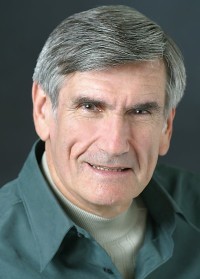Single News
Founder of nonviolent communication dies
ALBUQUERQUE/USA (NNA) – Marshall Rosenberg, the founder of nonviolent communication, died on 7 February at the age of 80 in Albuquerque/New Mexico.
Rosenberg had been an inspiration, pioneer and model for many people, the German Association of Nonviolent Communication says on its website: “The model and attitude of nonviolent communication was his life’s work. It continues to live in all people who make it their own and pass it on to others.”
Rosenberg was born in Ohio in 1934 and nine years later moved to Detroit with his family. “Growing up in an inner–city Detroit neighbourhood, Dr. Rosenberg was confronted daily with various forms of violence,” the the Centre for Nonviolent Communication writes about its founder. Wanting to explore the causes of violence and what could be done to reduce it, he chose to study clinical psychology and received his PhD in Clinical Psychology from the University of Wisconsin in 1961. In 1966 he was awarded diplomat status in clinical psychology from the American Board of Examiners in Professional Psychology.
In his biography of Rosenberg, Al Weckert says that it was his encounter with the sociology professor Michael Hakeem and his critique of clinical psychology which caused the student to seek a new direction. He found it in the work of Carl Rogers who had become known through his technique of active listening and client-centred talk therapy.
In 1960 Rogers included Rosenberg in a research project on the efficiency of therapies. The results pointed to the importance of empathy, honesty and authenticity in the healing process. They questioned forms of therapy such as psychoanalysis in which the therapist played a dominant role.
Having left university in 1961 with his doctorate in clinical psychology, Rosenberg began working in a practice in St. Louis, married his wife Vivian and had three children. He presented his method of working at the first American conference for family therapy which focused on a truly human approach in the therapeutic process, also including the family members of the patient.
Nonviolent communication
It was at the end of the 1960s that he began to develop nonviolent communication, Weckert writes. Important steps in this process were contact with the philosophy of education of the Brazilian Paulo Freire. This led to the desire to enable people to take constructive action to assert their needs. He continued to work on the concept of nonviolent communication in the following decades.
In 1984 Rosenberg founded the Centre for Nonviolent Communication (CNVC) in Sherman,Texas. It was also there that he introduced the well-known glove puppets of the jackal and duck followed later by the giraffe and wolf with which he illustrated his presentations on communication. According to Weckert, Rosenberg’s second wife Gloria influenced the model of nonviolent communication by “feminising” it.
“Nonviolent communication training evolved from Dr Rosenberg’s quest to find a way of rapidly disseminating much needed peacemaking skills,” the Center for Nonviolent Communication writes. The Centre itself “emerged out of work he was doing with civil rights activists in the early 1960's. During this period he also mediated between rioting students and college administrators and worked to peacefully desegregate public schools in long-segregated regions.”
Rosenberg withdrew from public life in 2011 for health reasons. He had worked all over the world with groups ranging from educators, managers, mental health and health care providers through lawyers, military officers, prisoners and police to prison officials, clergy, government officials, and individual families. He was active in war-torn areas and economically disadvantaged countries, offering nonviolent communication training to promote reconciliation and peaceful resolution of differences.
The model of nonviolent communication not only influenced social movements dealing with conflict mediation but is also practiced in the human resources departments of commercial enterprises, Weckert says in his biography. Although he was never awarded the Nobel Peace Prize, something Weckert thinks he deserved, Marshall Rosenberg had to be counted “among the great personalities of the twentieth century.” His life’s work continues to spread and contribute to the development of human awareness.
END/nna/ung/cva
Item: 150410-02EN Date: 10 April 2015
Copyright 2015 News Network Anthroposophy Limited. All rights reserved.

